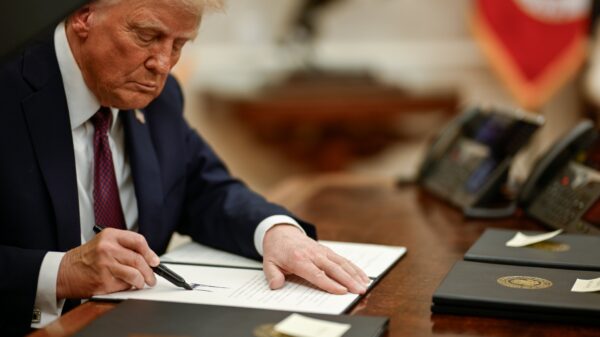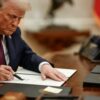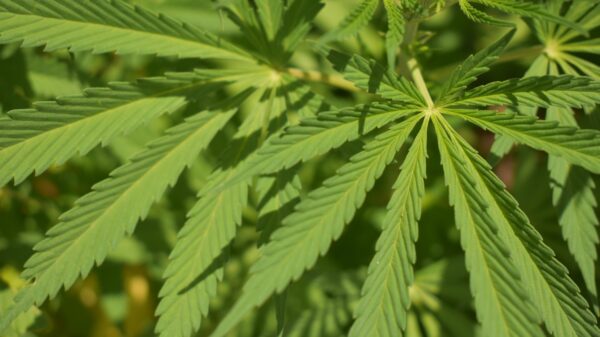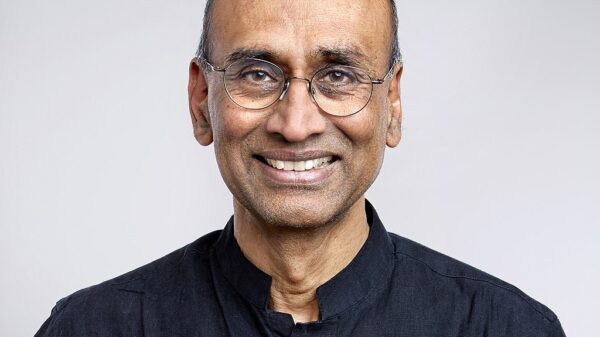Roar staff writer Mehmet Temur discusses Javier Milei’s radical bid for the Presidency in Argentina, arguing that it deserves to be understood on its own merits
An old macroeconomy joke is that there are only four types of economics: developed, developing, Japan and Argentina. And it is perhaps the last one that is the most complicated to understand. Before the Great Depression, less than 100 years ago, Argentina was one of the 10 richest countries in the world. Nowadays, it even lags behind regional South American economies and has to be constantly bailed out by the IMF. With triple-digit inflation, 40% poverty and rapid devaluation, it is no wonder that there are some politicians who want to do solve these persistent problems by trying radically different things. And it looks like one of these politicians may well be the next president of Argentina.
In a dramatic turn of events, Javier Milei, an outsider and the leader of the La Libertad Avanza party, has defied expectations by securing a remarkable 30% of the votes in Argentina’s primaries. This surprising outcome, deemed a “political earthquake” by local media, places Milei ahead of more established political figures. Unlike traditional primaries, Argentina’s open system welcomes all eligible voters, making Milei’s victory a strong indicator of shifting public sentiment. And just as his popularity surges, many are drawing parallels between Milei and former U.S. President Donald Trump. While there may be some surface-level similarities, a closer examination reveals significant differences that make the comparison fall short. Here’s why Milei cannot be simply labeled as “Argentina’s Trump.”.
Origins and Party Creation
Trump’s ascent to power involved taking over an established political party. In contrast, Milei’s journey has seen the creation of a new political entity, La Libertad Avanza. This distinction is crucial, as Milei’s party doesn’t have the same deep-rooted establishment history that Trump’s Republican Party had. Milei’s party is a product of his own vision rather than an annexation of a pre-existing structure. This fact alone sets Milei apart as a political trailblazer in Argentina’s landscape.
Economic Understanding
One of the most significant differentiators between the two is their economic expertise. While Trump was often criticised for his limited grasp of economics, Milei stands on solid ground as an economist. His understanding of economic principles and policies surpasses the surface level. In fact, it is likely that his challenge lies in meshing his economic expertise with political acumen. Milei’s economic insights have the potential to shape policies that resonate with his libertarian ideology.
Personal Wealth and Campaign Financing
Trump’s personal fortune played a considerable role in his political journey, allowing him to invest substantial sums in his campaigns. Conversely, Milei’s financial resources are significantly more modest in comparison. He lacks the vast personal wealth that Trump brought to the table (Although it is important to note that there are several allegations and unanswered questions about how he finances his campaign). This financial distinction underscores the unique circumstances underpinning their political ambitions. Milei’s rise demonstrates a different path to influence, one not paved by significant personal wealth.
Policies and Ideology
Trump’s policy platform focused on issues such as “draining the swamp” and promoting “America First.”. Milei’s agenda is centred around “demolishing the caste” and rebuilding Argentina’s standing. While both figures employ fiery rhetoric, their policy directions, and priorities significantly differ. Milei’s economic policies lean towards limited state intervention and deregulation, resembling the U.S. Libertarian Party more than the Republican Party. He is against any kind of state intervention in the market, and is pro-austerity to a such an extent that he proposes spending cuts that go even further than much-reviled measures imposed by the IMF (as part of a $57 billion loan package that dates back to 2018) . This ideological alignment with libertarian principles sets Milei’s platform apart from Trump’s more atypical agenda, that increased the federal government’s deficit and produced a staggering 900 billions dollar stimulus package during the pandemic. During his presidency Trump vehemently defended the entitlement programmes and strongly opposed cutting Medicare and Social Security. Moreover, he famously opposed trade deals with foreign countries and imposed tariffs on many goods, an entirely different approach compared to Milei’s purely libertarian policies.
Populism and Extremism
Both Milei and Trump are often associated with a populist approach. However, they embody different strains of populism. Milei’s brand of populism resonates with core libertarian principles, emphasising incredibly limited government intervention, going so far as to abolishing the Argentinian central bank and dollarising the economy. Moreover, Milei is widely considered as much more socially conservative, due to his extreme anti abortion and sexual education platform. On the other hand, Trump’s populism blends with a more traditional conservative approach, and usually depends on what is popular with his base at the given time. This distinction in their populist ideologies shapes their policy proposals and rhetoric, leading to divergent strategies for addressing public sentiment.
In conclusion, while comparisons between Javier Milei and Donald Trump have emerged, it is crucial to recognise the nuanced differences that set them apart. While they share some similarities in their outsider status, charismatic communication, and populist tendencies, the underlying contexts and motivations that drive them are distinct. Milei’s economic expertise and policy priorities differentiate him significantly from Trump’s trajectory. They are both undoubtedly figures with extreme positions on many issues, but reducing Milei to “Argentina’s Trump” hugely oversimplifies the intricate political landscape he operates in. As Argentina’s political landscape evolves, Milei’s journey will undoubtedly continue to draw global attention, but it should be understood on its own merits, distinct from any direct comparison to other political figures. Milei’s emergence represents a unique moment in Argentina’s political evolution, and understanding its singularity is essential to fully appreciate his impact on the country’s political discourse and future.











